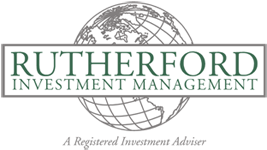http://www.businessweek.com/investor/content/apr2009/pi20090410_940389.htm
Investing April 13, 2009, 12:01AM EST Stocks: Is the Rally on Sound Footing? Almost everyone has been surprised by the stock market’s month-long run. But keeping the momentum going could be tricky By Ben Steverman
Recession? Financial crisis? Never mind. The stock market just finished an extraordinary month, a big surprise for even the most optimistic observers.
Stocks, measured by the broad Standard & Poor’s 500-stock index, hit a low for the current bear market on Mar. 9. A month later, by the close on Apr. 9, the S&P 500 was 26.6% higher.
If this March-April advance were a calendar month, it would be the best month for the S&P 500 since 1933.
“The rally has been surprising in its length and how far it’s come,” says William Rutherford, president of Rutherford Investment Management. Stock gains are boosting confidence, not just among investors but in the U.S. economy as a whole, he says.
“There is a lot of upward momentum here,” says Richard Sparks of Schaeffer’s Investment Research. “A lot of buyers are stepping in.”
Notes of Cautious Optimism First-quarter earnings season, which began on Apr. 7, threatened to trip up the market rally. After all, amid a global recession and financial crisis, earnings for the S&P 500 are expected to drop 38%, according to Thomson Reuters (TRI).
But an early earnings announcement from Wells Fargo (WFC) sparked a rally, when the bank reported profits that were double expectations.
“Expectations for earnings season are so low that it’s going to be hard to disappoint,” says James King, president and chief investment officer at National Penn Investors Trust.
The fact that good news arrived from the financial sector was especially significant.
“If the positive trend continues with other banks-helped by mark-to-market [accounting rules] modification and an interest rate environment that is beneficial to margins-we may be able to put the worst of the credit crisis behind us,” William Knapp, investment strategist for MainStay Investments, wrote Apr. 9.
A main driver for the market rally may be the hope that, thanks to government actions and the passing of time, the very worst of the crisis is over.
“In spite of unemployment staying pretty high, there’s a growing feeling that all is not lost,” King says. “Even though things are bad, we’re going to be able to work out these problems.”
Swift Recovery from Bear Market Unlikely The S&P 500 closed on Apr. 9 at 856.56. From the perspective of Mar. 9, this is a lofty level, but not from other vantage points. Stocks are 45% below their peak on Oct. 9, 2007. Except for the last several months and the bear market of 2002 and 2003, stocks haven’t traded at these prices since 1997.
And though the market’s swing higher has been especially sudden and surprisingly long-lived, it’s one of many wild swings since the start of the credit crisis.
The last time the S&P 500 moved north of 850 was just two months ago-on Feb. 9. In other words, we’ve been here before.
Investors and traders have gotten used to the wild swings from month to month, and few are perfectly sure that stocks won’t dip once again.
Sparks believes Mar. 9 may represent the lowest point for the stock market during this bear market. But that doesn’t mean a further market rally will be quick and easy.
“Bear markets don’t normally resolve themselves by bouncing right back,” he says. In the last bear market, for example, stocks hit bottom in mid-2002, but a true rally didn’t start until a year later. “It’s going to be a much longer, rougher road higher than a lot of people may expect,” Sparks says.
More Earnings Reports, More Context Earnings could still derail the market’s momentum. Wells Fargo’s success could eventually be seen as an exception from one of the strongest banks, not an indication the financial sector’s problems are finished. Earnings reports from Goldman Sachs (GS) on Apr. 14 and JPMorgan Chase (JPM) on Apr. 16 will provide more context.
Moreover, it’s hard to exaggerate how atrocious first-quarter earnings are likely to look. Every sector is expected to see earnings fall from the year before, according to Thomson Reuters. In the consumer discretionary sectors, analysts predict a 108% decline as earnings of $11 billion a year ago turn into a $916 million loss.
The unemployment rate is also expected to climb rapidly this year, King notes. “A number of things are going to continue to deteriorate while we’re recovering in other areas,” he says.
Rutherford believes the stock market will eventually falter and return near March lows. The key question is “What happens then?” If the stock market fails that test and drops even lower, it could signal another economic meltdown, Rutherford says.
More likely, he says, “If the test holds, I think the economists will be right that [the economy] will come out of this [recession] in the late part of the year.”
Investors-at least those who kept their money in the stock market-are much richer now than a month ago. (Of course, they’re a lot poorer than a year ago.) But holding on to those gains will be no easy feat.
Steverman is a reporter for BusinessWeek’s Investing channel.
